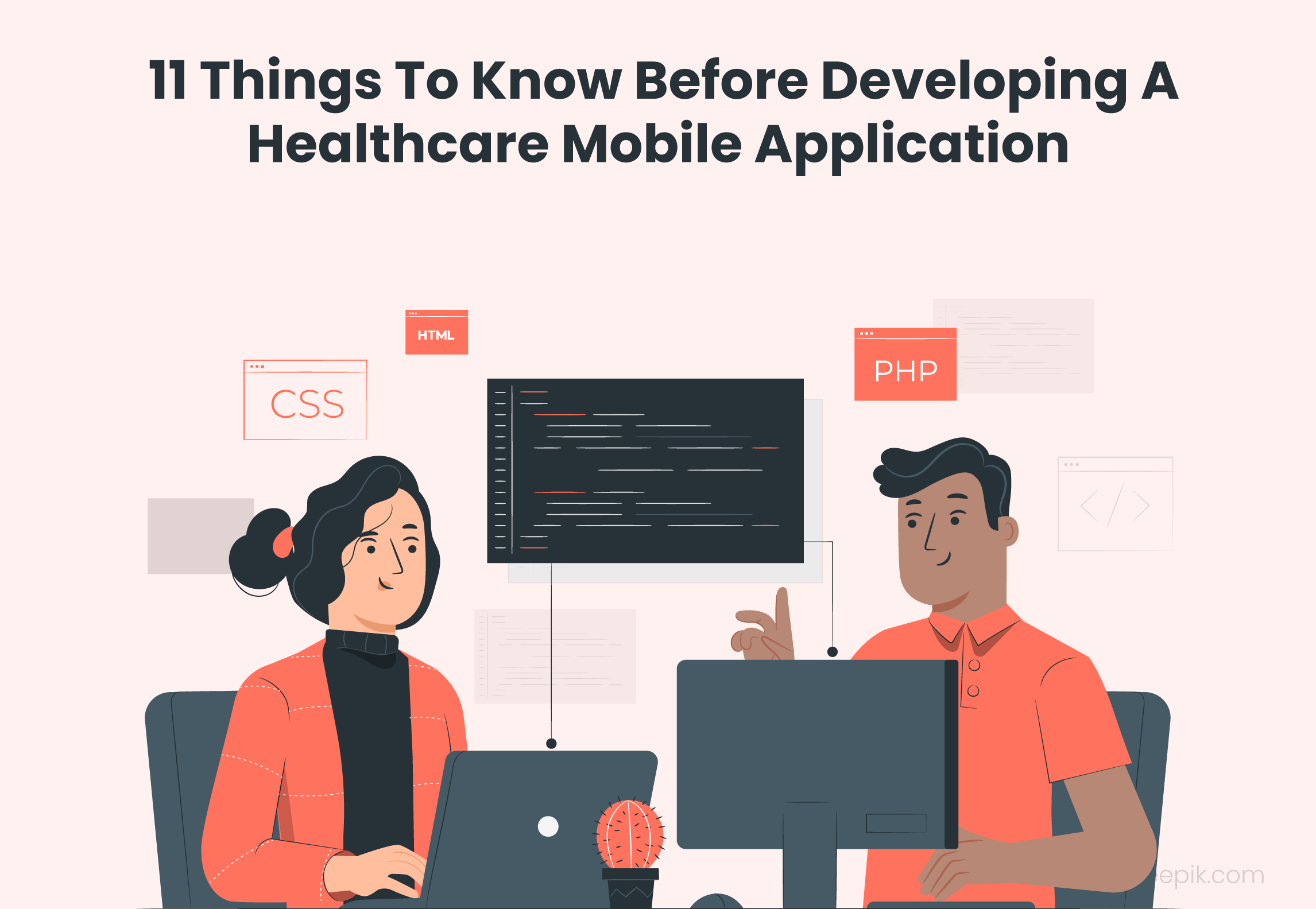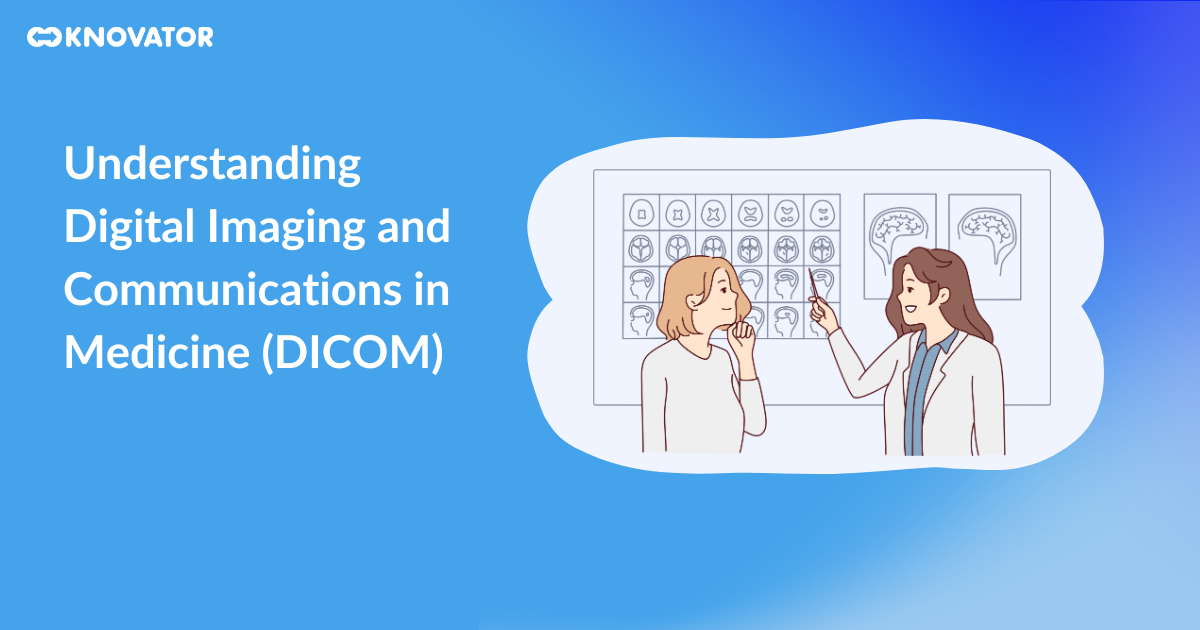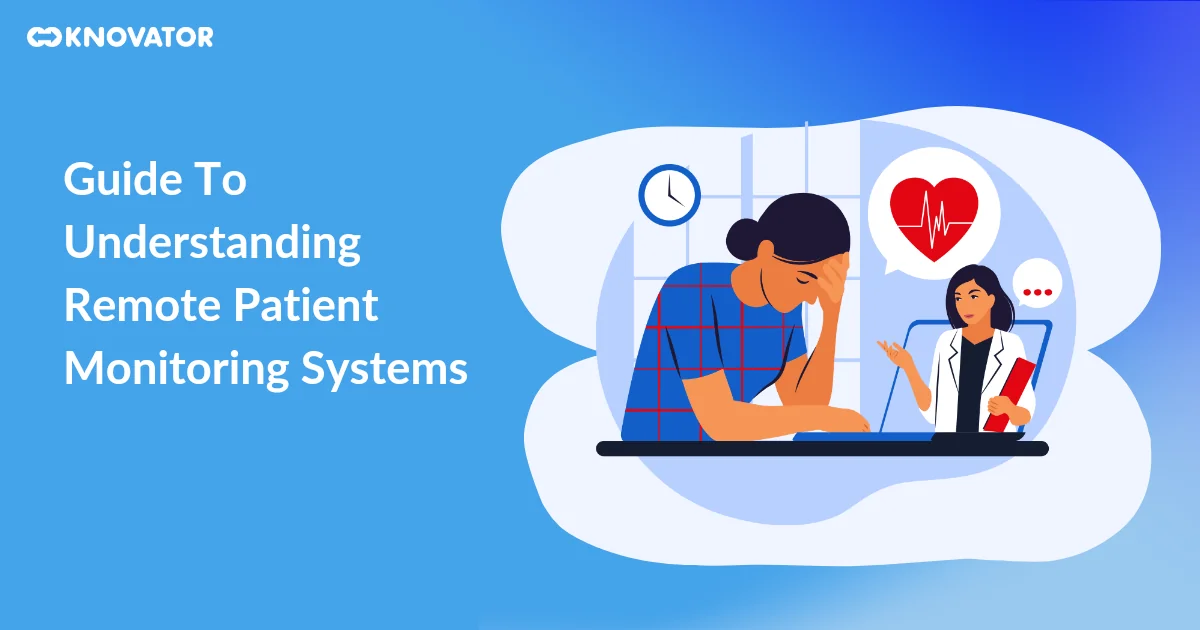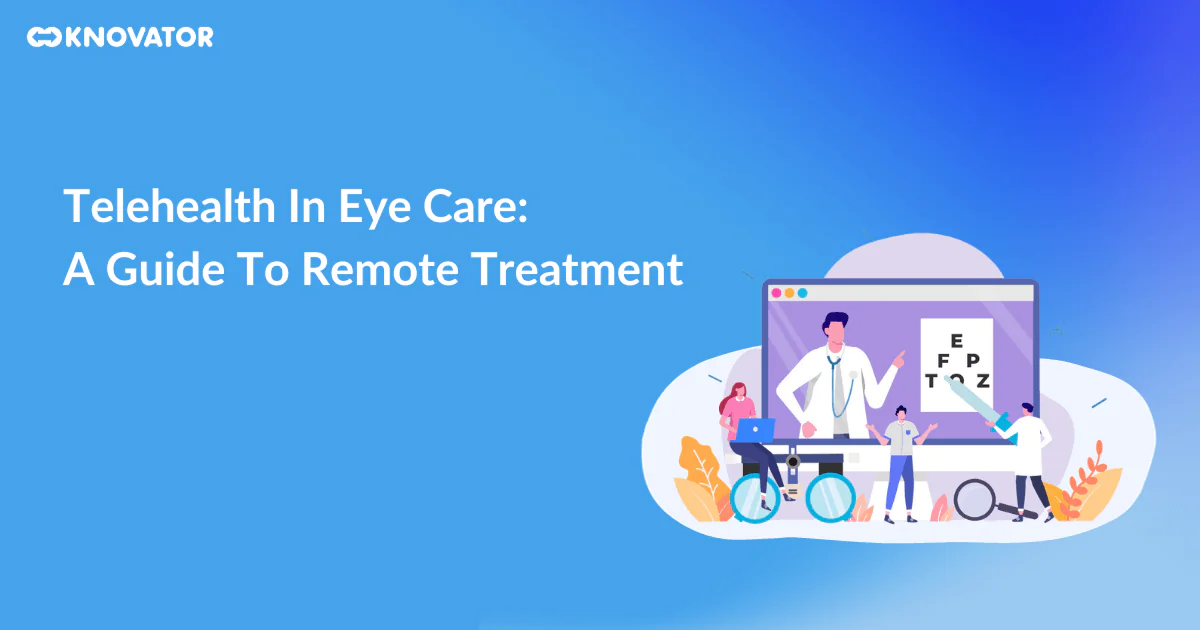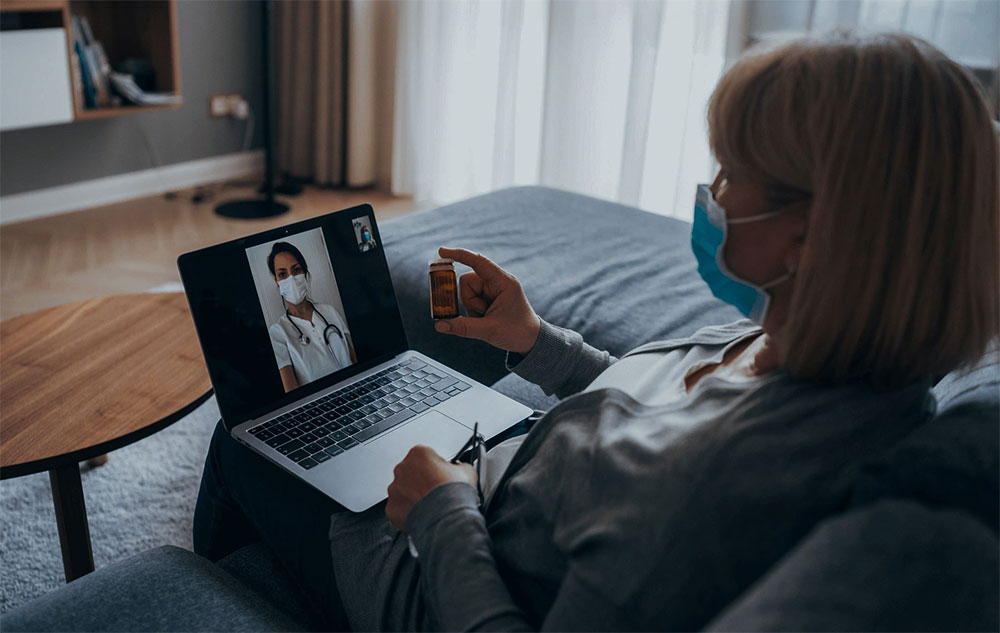Mobile apps are the need of the hour. Everyone has a mobile and can access everything from healthcare to banking from any place. At least 1 healthcare mobile app will be present today on a user’s mobile; related to appointment booking, ordering lab tests and medications, or improving their health outcomes.
If you are planning to launch your own healthcare mobile apps business, you can hire a healthcare mobile app development company to build your app without any issues.
In this article, we share the essential things you should know before contacting a healthcare mobile app development service provider.
Looking for a 30-minute free consultation to know what goes into building a healthcare mobile app? Call us today and our team will help you out.
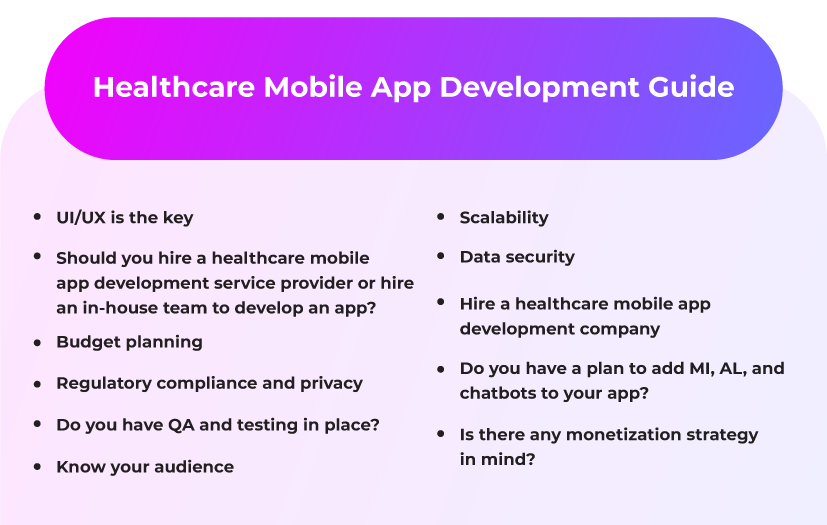
1. Healthcare App Development Team
Hiring an in-house team comes with many benefits like you can recruit them and then give them a complete picture of your expectations and divide the project into releases. A team can provide incremental delivery and ensure that your mobile app is developed in stages.
The first problem with hiring an in-house team is looking for mobile app developers that have sound experience in the relevant technology. For that, you need to spend on recruitment, filter the profiles, interview them with an external mobile app expert [you need to pay fees for that as well], and eventually roll out the offer. Post offer release, there is no guarantee that the candidates will join the company.
Along with this, you also need to plan employee policies, infrastructure, salaries, overheads, and other expenses like maintaining their systems and laptops to run seamlessly or plan backup in case of their absence. Moreover, if there is a demand for an IoT developer, you may have to hire it again from the market for a contractual position or full-time position. You need to provide the requirements on a timely basis.
If you hire a healthcare mobile app development company like Knovator Technologies, you do not have to worry about all the above factors as the company will take care of everything and you just need to provide feedback on scope, budget, design and how are you planning to monetize your healthcare business. The initial costs may look expensive but in the long run, you will save time, and overheads, and can concentrate on driving business and not technology.
2. UI/UX is the key
UI/UX plays an important differentiator, especially in the healthcare business. If you are looking to copy another design, then your clients will identify and the engagement could be less.
You need to add innovation, simplification, minimalism, and brainstorming to design a brand-new UI/UX design for your application.
Your healthcare mobile app must have appropriate CTA buttons and ensure that a user can consume the information appropriately and take quick action or the next step. Imagine that a patient can enter the records in a few touches, or a doctor can create repetitive appointments for a week or month in a few touches itself? Great, right!
The design must be acceptable to any age group and should have accessibility features. You can use simple and authentic fonts and do not use complicated designs on the app. You can take feedback from users by integrating a front-end camera or back-end camera to take pictures etc.
3. Regulatory compliance and privacy
Equipping your app with HIPAA and privacy can ensure that there are no issues related to data leaks or security breaches. It’s important to note that the European market will accept Data Protection Directive 1995/46/EC (Section 2.1) and the e-Privacy Directive 2002/58/EC (Section 2.2) and the USA market will accept HIPAA.
You must study or hire a healthcare mobile app development services provider that can help you build a mobile app with appropriate regulatory compliances or other protocols and have data download or image capturing restrictions and other encryptions.
Please note that Apple and Google Play stores will reject your apps if they are not protected against HIPAA or other protocols based on region.
4. Do you have QA and testing in place?
You need to have an internal QA team that can check the mobile app for the complete functionality and ensure that there are no bugs reported in the same.
The team must check the app for any data download restrictions working properly and ensure that there are no issues at all in terms of violating the HIPAA, PHI, or PII protocols. You also need to verify geo-location services if they are working as per the location.
You must do verifications including OTP mechanism, payment process, information accuracy, loading, performance, medical imaging checking, testing on a poor network, and configuration testing to ensure everything is working as expected.
Knovator Technologies, the best healthcare mobile app development company has a team of quality assurance testers who test your mhealth and telemedicine apps for bugs. Our aim is to give your users a smooth experience while using your app.
5. Know your audience
Knowing your target audience is equally important in the healthcare business. If you do not know who is going to use your app, your app will fail. It’s important to note that you must discover how the patients and doctors will interact or patients will interact in the app. Is it possible that 2 medical doctors can interact on the app?
Before hiring a healthcare mobile app development service provider, know the age group your app will be targeting. The features for apps that target 18-25 or 25-40 year old users will be different from those targeting 40-65 years of age.
How do you ensure to develop features for an audience that depends on their wearable devices or smart watches for their health? You need to consider all the features and map them with your targeted audience to chalk out your project plan for developing a mobile app.
6. Budget planning
Your normal budget will go in-between $10,000 to $150,000 depending upon the features you choose. If you’re opting for minimum viable product development, your development cost and time to launch will be less. Based on the feedback you can build a complete app.
It’s important to note that if you are going for wearable technology, the spend will be more and you must consider buying the equipment for testing purposes. You can concentrate on developing an app for one platform and then add more platforms as the time goes on and you have more funds.
At this stage, you need to consider costs for maintenance, up-gradation, and support.
Schedule a free call with us for a free budget estimate of your healthcare app development.
Healthcare mobile app development company gives you a complete estimate of the cost of mobile app development based on the features, scope, kind of resources required and the time taken to build the app.
7. Scalability
You must decide the number of users and locations to launch the app. Once launched, you need to have appropriate servers, RAM size, code quality, database quality, and other infrastructure to ensure that the app is never down and is scalable. Adding a load balancer will also help to ensure that when you are running backups, your app is running on another data center.
Choose a healthcare mobile app development service provider that lets you scale the app as and when the users increase.
8. Do you have a plan to add MI, AL, and chatbots to your app?
You must always think of adding chatbots that can automate repetitive queries and collect feedback quickly. Cognitive support should be on an on-demand basis and you can cut down on expenses easily.
If you are having a geo-location feature, your app can always suggest a doctor based on feedback, availability, rating, the number of appointments rejected, and other factors. This is possible from a Machine learning or Artificial intelligent point of view.
Now, imagine that you want to know the peak load of your users or want to find the data of the doctor that is giving you maximum appointments? Moreover, you want to predict the above data points for the next quarter. You can add Big Data and add ML, and AI algorithms to ensure that you can run your business successfully and plan the future also.
9. Hire a healthcare mobile app development company like Knovator Technology for API integrations
There are many APIs available in the market that can bring claim status, inquiry, prior authorization data, and payment remittance data without any hassles. You must consult and add all the possible APIs that can help you run a healthcare mobile app business accurately. It also reduced your audit and quality check costs.
10. Data security
You need to have data security practices to ensure that there are no issues when downloading the app or adding a medical record. It must display as per your expectations and users must not find any sign that the data is not secure and there are issues when they are trying to share the data without accepting the consent in the app.
At Knovator Technologies, USA’s top healthcare mobile app development company, we ensure your users’ data is secure at all times. Data security is essential in all industries, more so in healthcare.
11. Is there any monetization strategy in mind?
If you do not know how to monetize your app, it’s time to decide if you want to include a subscription module, referral scheme, consultation service charges, or another model in your app.
Now that you know the basics, the next step is to decide on the right healthcare mobile app development service provider who can understand your business and has proven expertise in developing healthcare software, websites and business apps.
Contact Knovator Technologies – your single-stop healthcare mobile app development company to convert your healthcare business idea into a mobile app that generates revenue.
Also Read Benefits of Buy Hospital Automated Prior Authorization Solution
Let Knovator’s healthcare development experts take care of your mobile app, right from scoping the features to launching the app and post-launch maintenance.

